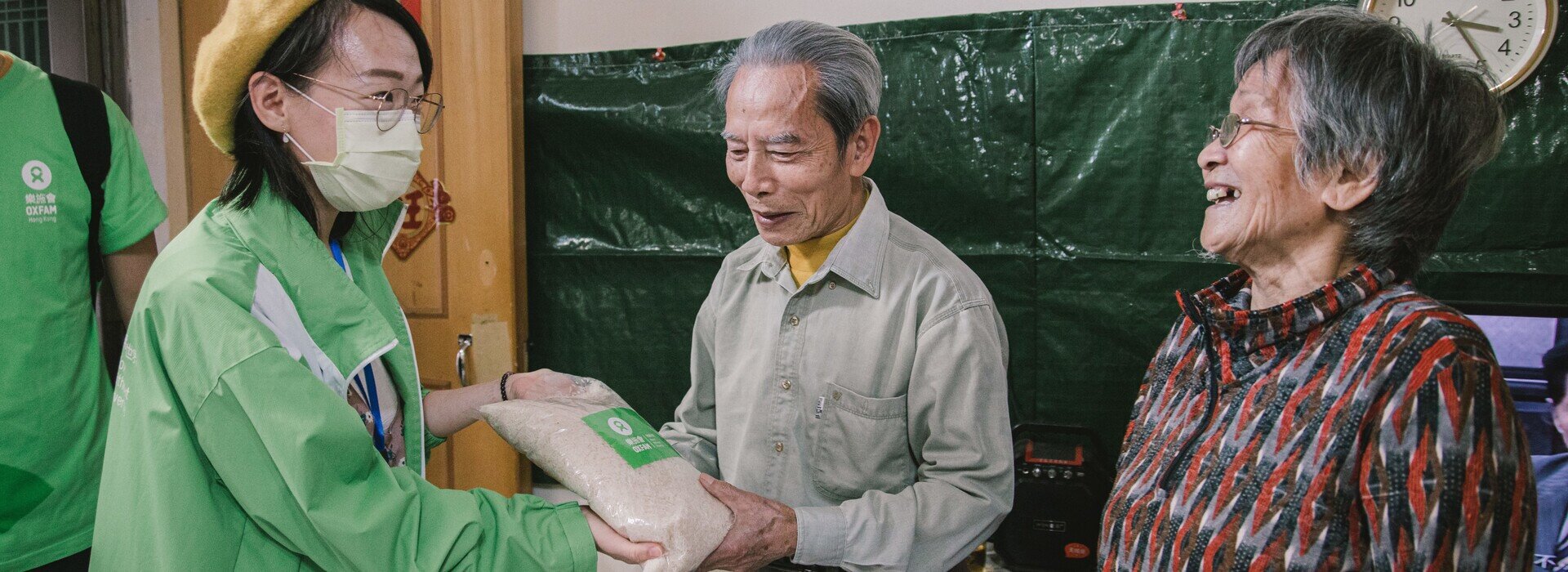Updated 15 June 2021
Oxfam’s Response in Macau
With the outbreak of COVID-19 in Macau, an exponentially greater burden has been placed on low-income families as some workers have been laid off or furloughed. So, instead of organising one of our largest fundraisers – the Oxfam Rice Event – in its usual format, we focused our efforts on local relief work to ease low-income families' financial burden. We did this by, for instance, distributing 2.5 kg packs of rice to around 4,800 families.
Distributing Rice to Low-Income Families
In Macau, we partnered with Bosco Youth Service Network, Centro Comunitário Sun Tou Tong, The Salvation Army Joy Family Integrated Service Centre and União Geral das Associações dos Moradores de Macau to distribute 2.5 kg packs of rice to around 4,800 low-income households to alleviate the pressure they are experiencing because of the coronavirus.
‘We can’t keep up with inflation, especially right now with the pandemic. It easily costs us 100 MOP to purchase simple ingredients and fruits,’ one family shared with us. Some families have also been unable to cross the Chinese border to get their groceries at a cheaper price in the Mainland markets nearby.
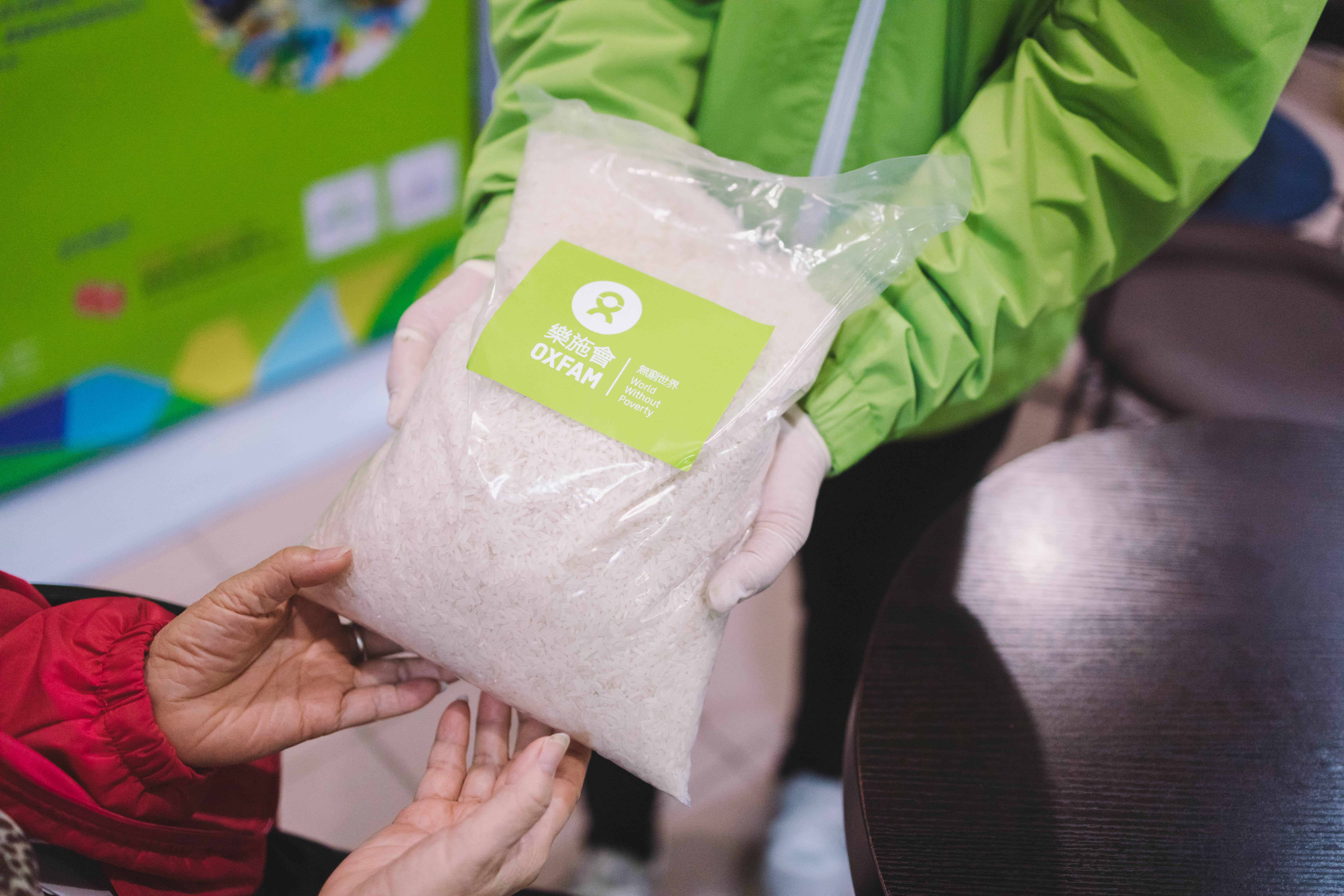
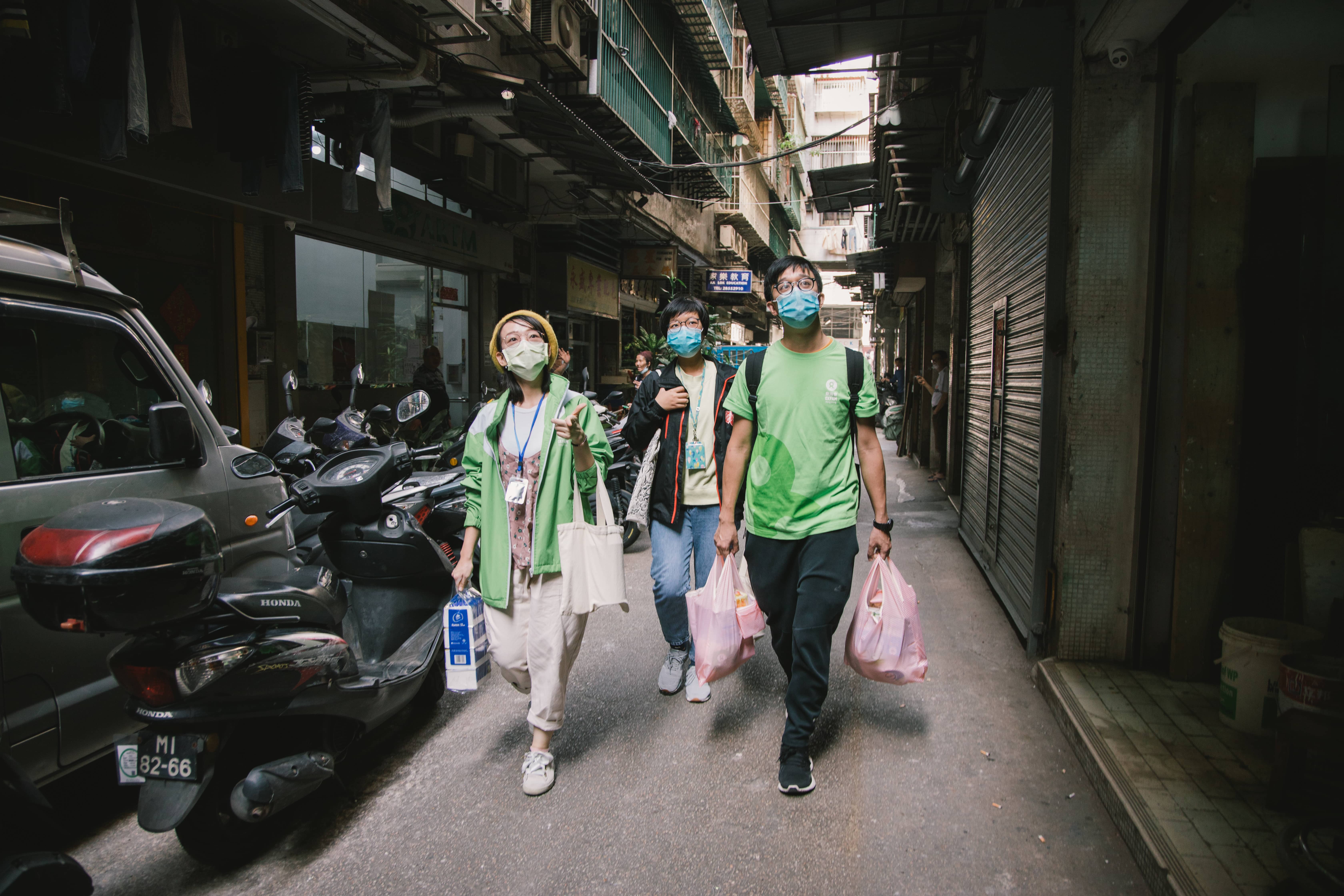
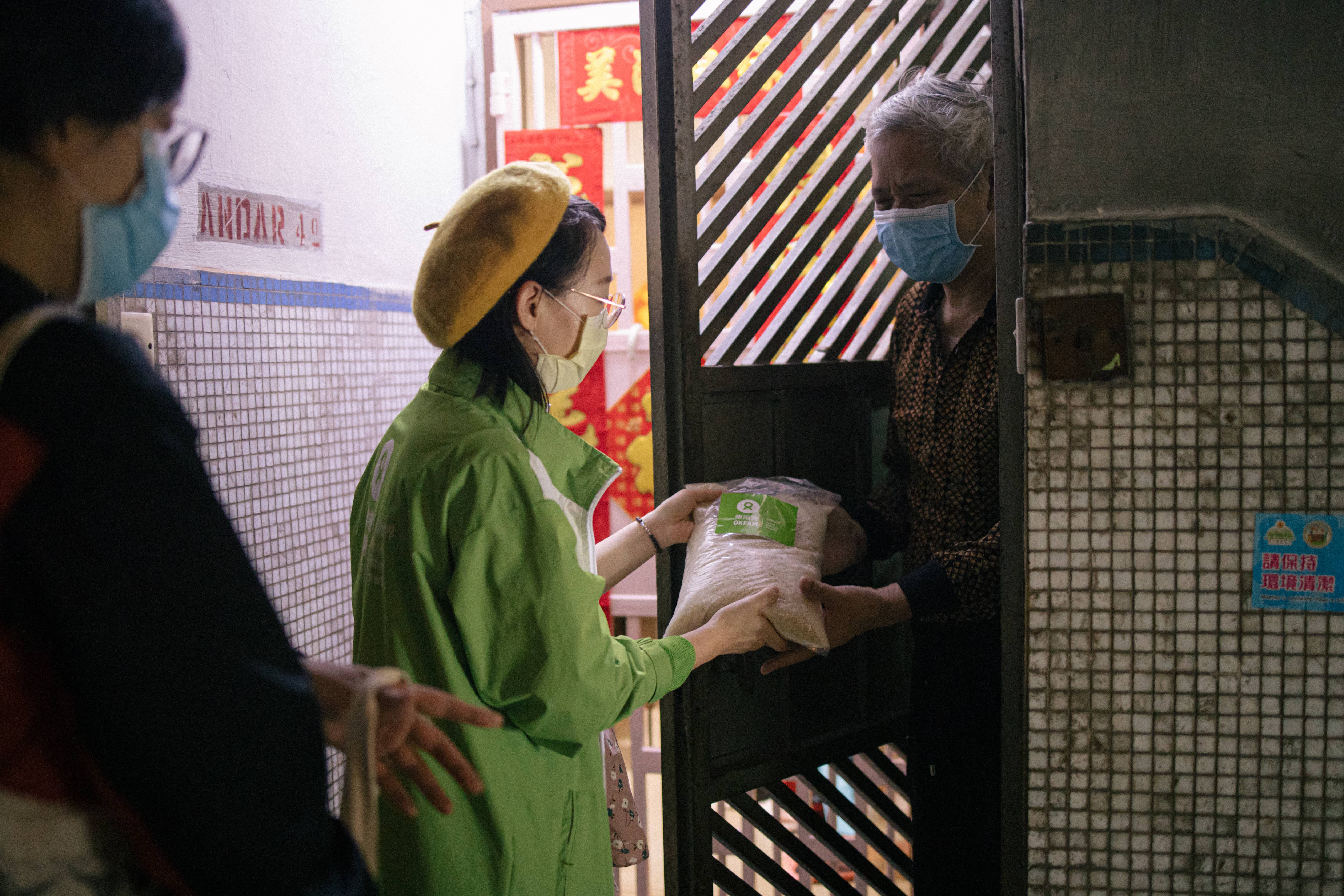
Food Rescue and Redistribution for Families in Need
Other than distributing rice, we have given families in need vegetables and fruits rescued from wet markets. Since 2016, we have been partnering with The Salvation Army Joy Family Integrated Service Centre on a food rescue and redistribution programme. Through it, food is rescued from wet markets three times a week around Iao Hon, Rua da Praia do Manduco and Avenida de Horta e Costa, then redistributed to families in need. As of the end of 2020, over 50,000 kg of food have been rescued and redistributed to over 18,500 households through the continued support of over 80 vegetable sellers.
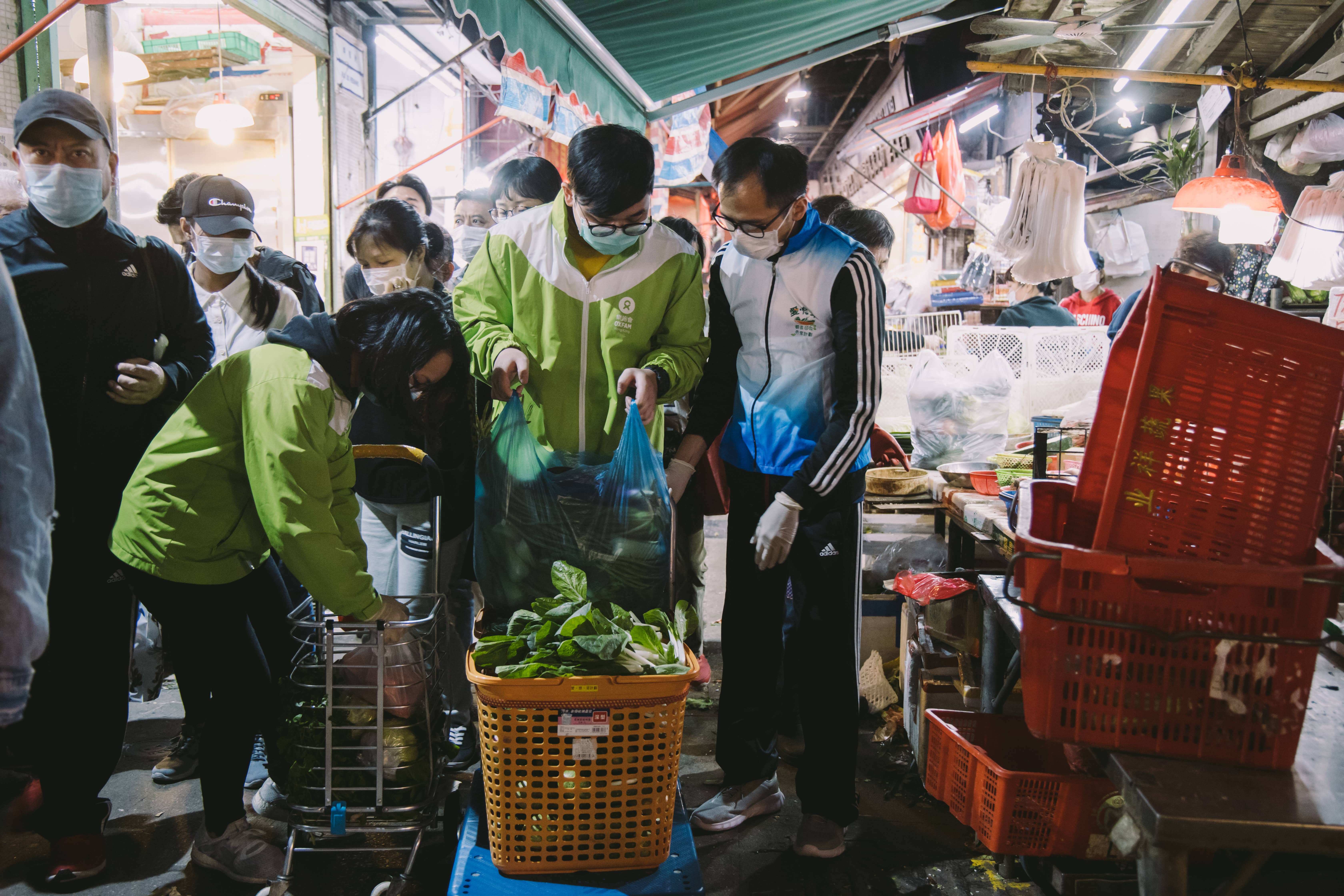
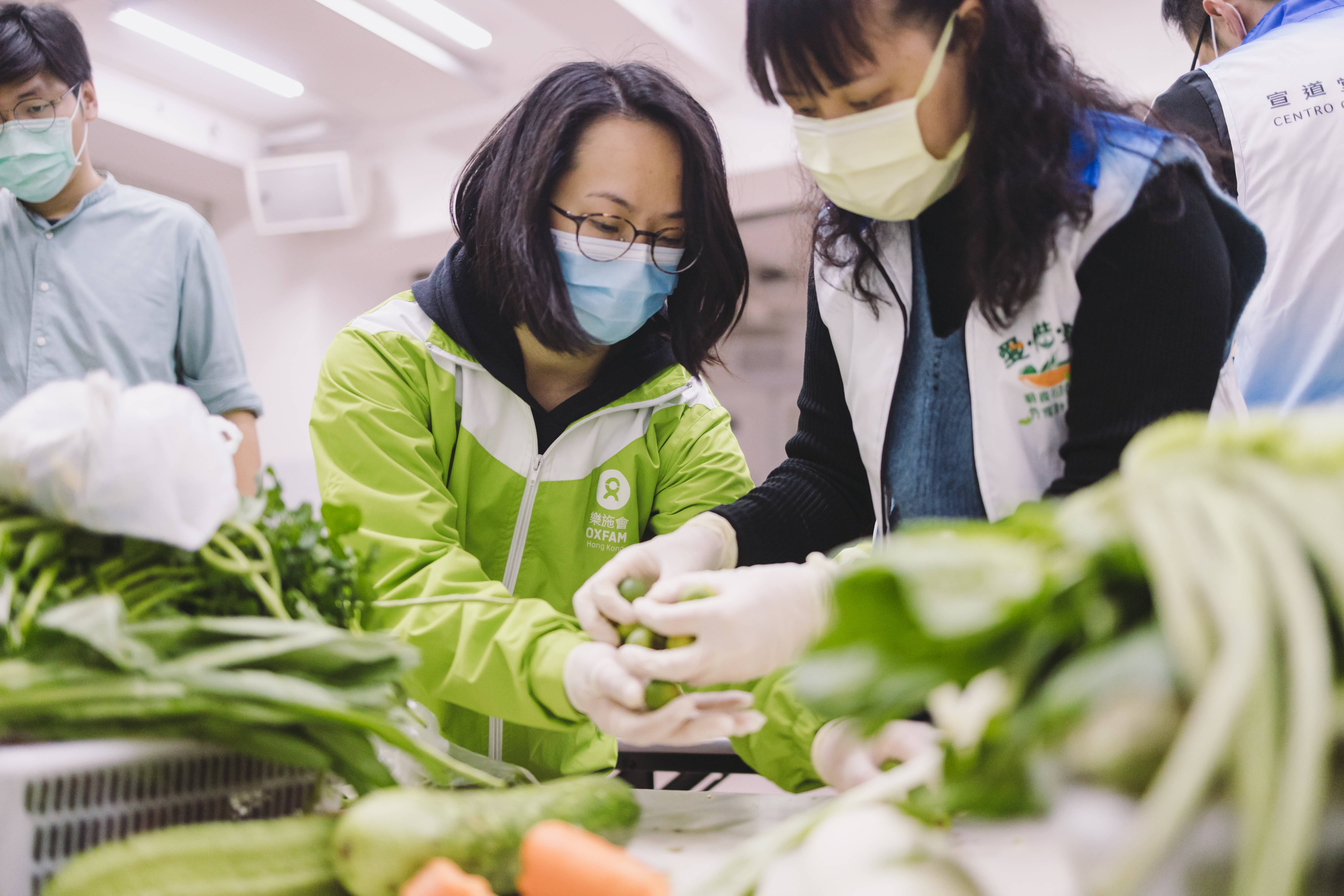
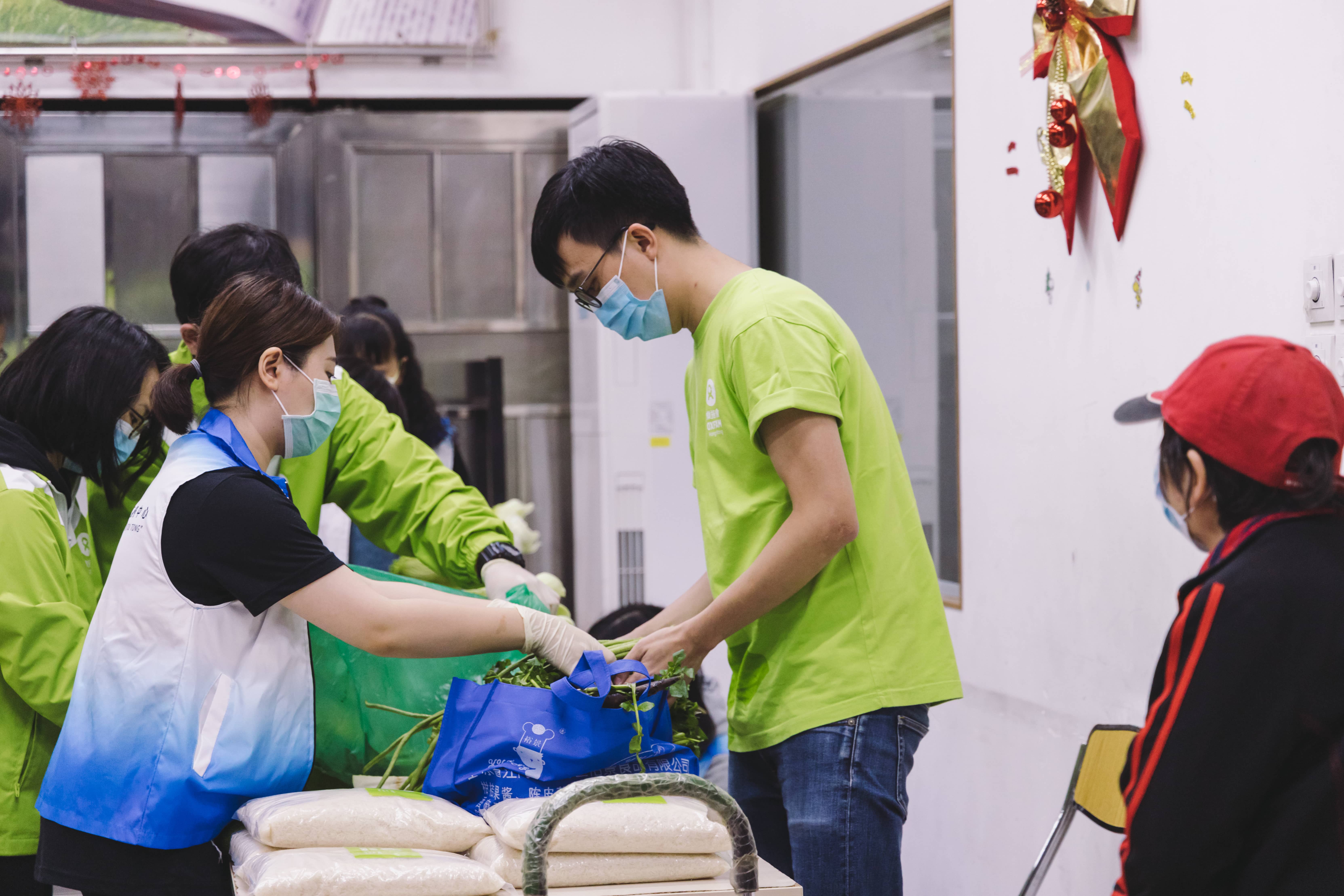
We at Oxfam in Macau will work with our partner organisations to continue to carry out our food rescue and distribution programme. Through our research and advocacy initiatives, we are also urging the Government to alleviate poverty through its policies, so that low-income workers and households have a better standard of living.

